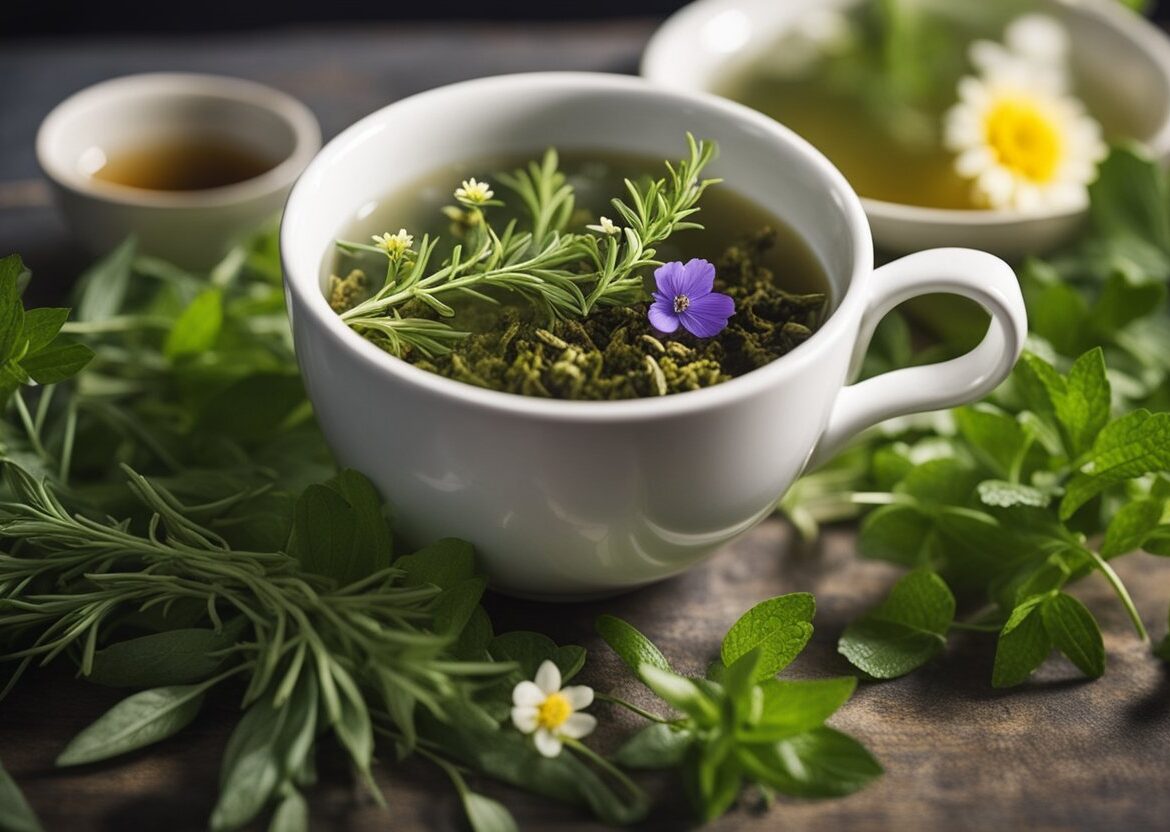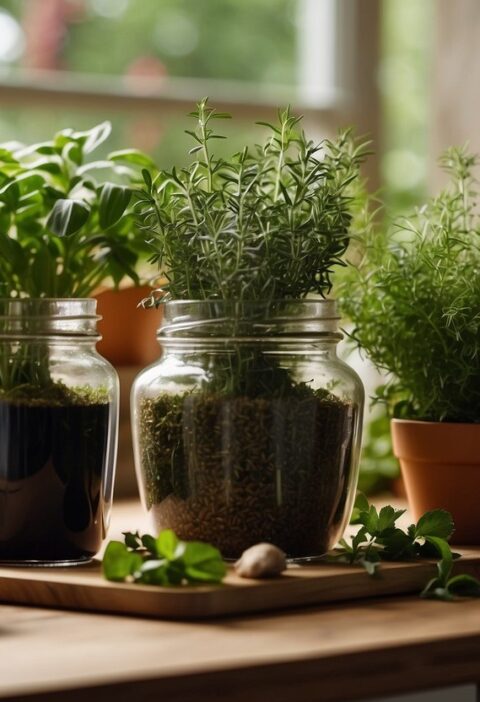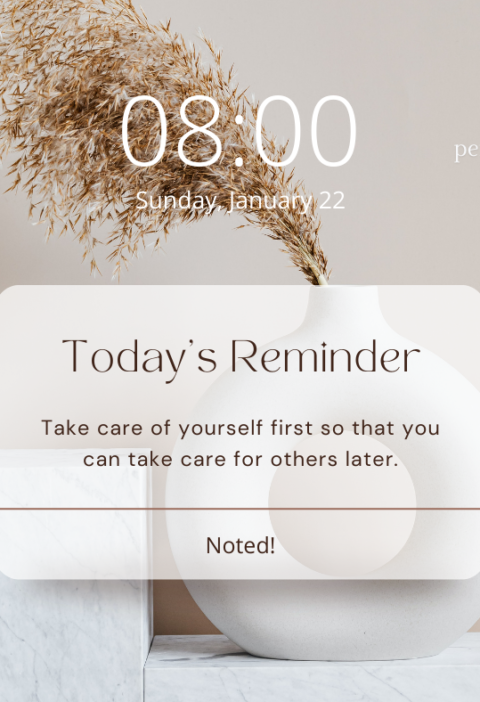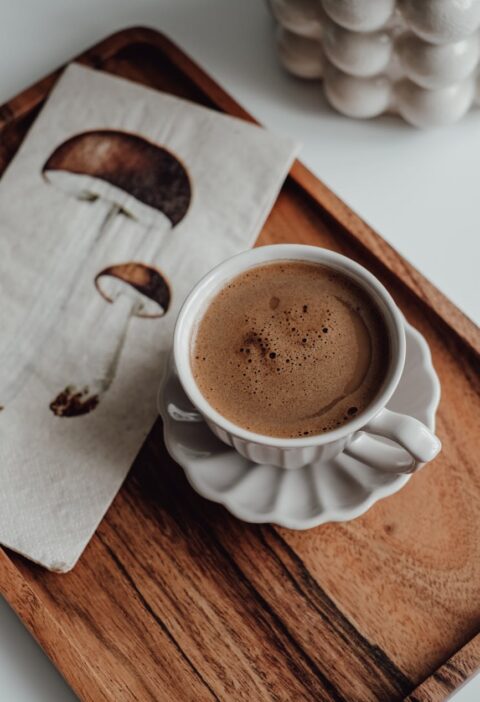Disclaimer: Perky Dove Coffee is a participant in the Amazon Services LLC Associates Program, an affiliate advertising program designed to provide a means for sites to earn advertising fees by advertising and linking to Amazon.com. Some of the coffee brands mentioned in our blogs may contain affiliate links, which means that if you click on one of the product links, we may receive a small commission. This helps support us and allows us to continue to find great deals for our online customers. We only recommend products that we genuinely believe in and have personally tried. Thank you for your support!
Herbal teas have been used for centuries as a natural remedy for various health concerns. From soothing an upset stomach to promoting relaxation, herbal teas have proven to be a powerful tool in our wellness arsenal. As modern medicine continues to evolve, the benefits of herbal teas are becoming more widely recognized, making them a popular choice for those seeking natural alternatives to traditional medicine.

In this article, I will explore the healing power of herbal teas and how they can be used to promote overall health and wellbeing. We will delve into the key ingredients found in herbal teas and their therapeutic benefits, as well as how to brew the perfect cup. Additionally, we will take a look at the latest research on the therapeutic uses of herbal teas and how to integrate them into your daily routine. Finally, we will discuss some precautions and considerations to keep in mind when using herbal teas for medicinal purposes.
Key Takeaways
- Herbal teas have been used for centuries as a natural remedy for various health concerns.
- The key ingredients found in herbal teas have therapeutic benefits that can promote overall health and wellbeing.
- Integrating herbal teas into your daily routine can be a simple and effective way to support your health.
The Essence of Herbal Teas

Herbal teas have been used for centuries for their medicinal properties and delicious taste. They are made by infusing various herbs, flowers, and spices in hot water. In this section, I will delve into the history and origins of herbal teas and compare them with traditional teas.
History and Origins
Herbal teas have a rich history dating back to ancient civilizations such as the Egyptians, Greeks, and Chinese. They were used for their medicinal properties and were believed to have healing powers. For example, chamomile
Herbal teas were also used for their spiritual and cultural significance. For example, the Native Americans used sage
Today, herbal teas continue to be popular for their health benefits and unique flavors. They are enjoyed by people all over the world and are available in a variety of blends and flavors.
Herbal Tea vs Traditional Tea
Herbal teas are often compared to traditional teas, such as black, green, and oolong teas. However, there are some key differences between the two.
Firstly, herbal teas are caffeine-free, while traditional teas contain caffeine. This makes herbal teas a great option for people who are sensitive to caffeine or who want to enjoy a warm beverage before bed.
Secondly, herbal teas are made from a variety of herbs, flowers, and spices, while traditional teas are made from the leaves of the Camellia sinensis plant. This gives herbal teas a unique flavor profile and allows for a wide range of health benefits.
In conclusion, herbal teas are a delicious and healthy alternative to traditional teas. They have a rich history and offer a variety of health benefits. So why not try a cup of herbal
Key Ingredients and Their Benefits

As an avid
Chamomile and Relaxation
Chamomile
Peppermint and Digestion
Peppermint
Ginger and Immunity
Ginger
Hibiscus and Blood Pressure
Hibiscus
Incorporating these key ingredients into your daily
Brewing the Perfect Cup

As an avid
Selection of Herbs
The first step in brewing the perfect cup of herbal
When selecting herbs, it’s essential to choose high-quality, organic herbs whenever possible. Fresh herbs are also preferable to dried herbs, as they retain more of their flavor and healing properties. If you’re using dried herbs, be sure to store them in an airtight container away from direct sunlight.
Steeping Techniques
Steeping is the process of infusing herbs in hot water to extract their flavor and healing properties. The key to steeping herbal
The ideal temperature for steeping herbal
The steeping time also varies depending on the herb. Some herbs, like chamomile, require a longer steeping time to extract their full flavor and healing properties. Other herbs, like peppermint, can become bitter if steeped for too long.
Finally, the water-to-herb ratio is crucial for brewing the perfect cup of herbal
Enhancing Flavors Naturally
One of the joys of brewing herbal
Spices like cinnamon, ginger, and cardamom can also be added to herbal
In conclusion, brewing the perfect cup of herbal
Therapeutic Uses and Research

As a
Stress Relief and Sleep
One of the most common uses of herbal teas is for stress relief and sleep. Chamomile
Other herbal teas that can help with stress relief and sleep include lavender, lemon balm, and valerian root
Detoxification and Cleansing
Herbal teas can also be used for detoxification and cleansing. Dandelion root
Other herbal teas that can be used for detoxification and cleansing include nettle
Chronic Diseases and Herbal Teas
Herbal teas can also be used to support the treatment of chronic diseases. For example, ginger
Other herbal teas that can be used to support the treatment of chronic diseases include turmeric
In conclusion, herbal teas have numerous therapeutic uses and are supported by scientific research. Whether you are looking for stress relief, detoxification, or support for chronic diseases, there is likely an herbal
Integrating Herbal Teas into Your Lifestyle

Herbal teas are a great way to incorporate natural remedies into your daily routine. There are many ways to integrate herbal teas into your lifestyle, from daily routines and rituals to creating a personal
Daily Routines and Rituals
One way to incorporate herbal teas into your daily routine is to make them a part of your morning or evening ritual. For example, you can start your day with a cup of green
Creating a Personal Tea Garden
Another way to integrate herbal teas into your lifestyle is to create a personal
Pairing Teas with Meals
Herbal teas can also be paired with meals to enhance the flavors and provide additional health benefits. For example, ginger
Incorporating herbal teas into your lifestyle is a simple and effective way to unlock the healing power of nature’s remedies. Whether you start your day with a cup of green
Precautions and Considerations

When it comes to herbal teas, it’s important to keep in mind that just because they are natural, it doesn’t mean they are completely safe for everyone. Here are some precautions and considerations to take into account before incorporating herbal teas into your routine.
Understanding Side Effects
While most herbal teas are safe to consume, they can still cause side effects in some people. For example, chamomile
To avoid any unwanted side effects, it’s important to start with small amounts of herbal
Interactions with Medications
Herbal teas can also interact with medications, which can lead to unwanted side effects. For example, St. John’s wort
If you are taking any medications, it’s important to consult with your healthcare provider before consuming herbal teas, as they can advise you on any potential interactions and help you avoid any adverse effects.
Consulting Healthcare Professionals
If you are pregnant, breastfeeding, or have any underlying health conditions, it’s important to consult with your healthcare provider before consuming herbal teas. Some herbs can cause contractions in pregnant women, while others can be harmful to infants.
In addition, if you are undergoing any medical treatments, such as chemotherapy or radiation therapy, it’s important to consult with your healthcare provider before consuming herbal teas, as they can interfere with the effectiveness of the treatments.
Overall, while herbal teas can offer a range of health benefits, it’s important to take precautions and consider any potential risks before incorporating them into your routine. By consulting with your healthcare provider and starting with small amounts, you can safely enjoy the healing power of herbal teas.
Frequently Asked Questions

Which herbal teas are most effective for specific health issues?
Different herbal teas have different therapeutic effects on the body. For example, chamomile
Can you list the health benefits of drinking herbal teas regularly?
Drinking herbal teas regularly can have a number of health benefits. For one, many herbal teas are rich in antioxidants, which can help to protect the body against damage from free radicals. Herbal teas can also help to boost the immune system, improve digestion, and reduce inflammation in the body. Some herbal teas, like green
How do different healing herbs work in the body?
Different healing herbs work in different ways in the body. For example, some herbs may work by reducing inflammation, while others may work by boosting the immune system or promoting relaxation. Some herbs may even have multiple therapeutic effects on the body. It’s important to do your research and talk to a healthcare professional before using any herbal remedies, to ensure that they are safe and effective for your specific health needs.
What’s the best way to prepare herbal teas for maximum health benefits?
The best way to prepare herbal teas for maximum health benefits can vary depending on the specific herb being used. In general, however, it’s best to steep the herbs in hot water for several minutes to allow the active compounds to be released. It’s also important to use high-quality herbs and to avoid adding sugar or other sweeteners, which can negate some of the health benefits of the
Are there any risks associated with consuming herbal teas?
While herbal teas are generally considered safe, there are some risks associated with consuming them. Some herbs can interact with medications or cause allergic reactions in some people. It’s also possible to overdose on certain herbs, so it’s important to follow dosage instructions carefully and to talk to a healthcare professional before using any herbal remedies.
How often should one drink herbal teas for therapeutic effects?
The frequency with which one should drink herbal teas for therapeutic effects can vary depending on the specific herb being used and the individual’s health needs. In general, however, drinking one to three cups of herbal






